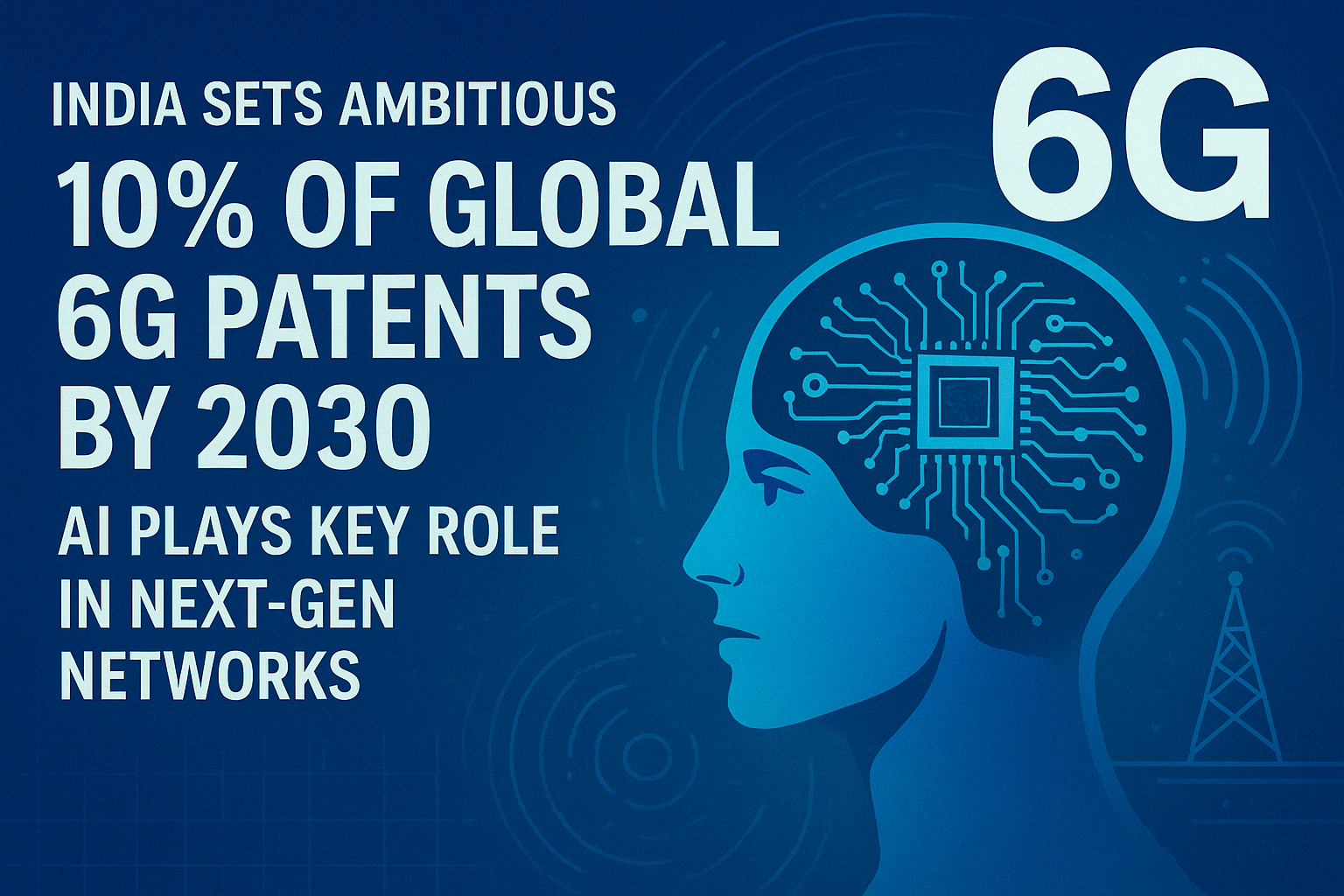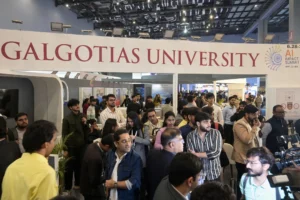India has set an ambitious target to capture 10% of global 6G patents by 2030, marking a strong step toward technological self-reliance. The Department of Telecommunications (DoT) announced the goal during the Emerging Science, Technology and Innovation Conclave (ESTIC) 2025.
Telecom Secretary Neeraj Mittal said India aims to be a global leader in next-generation communication technologies. He stressed that Artificial Intelligence (AI) will play a central role in shaping 6G networks. AI will help create intelligent, self-healing, and energy-efficient communication systems that adapt to real-time demands.
The government is working to build a strong ecosystem for research, patents, and innovation. It plans to connect academia, industry, and startups through collaborative projects. The initiative includes over 100 R&D programs focused on 6G technologies, open radio access networks (Open RAN), and indigenous chipset development.
India is also developing test beds and regulatory sandboxes to accelerate experiments in terahertz and optical communication domains. These facilities will support researchers and companies in testing next-gen communication tools under real-world conditions.
Officials said that the 6G roadmap aligns with the “Atmanirbhar Bharat” and “Viksit Bharat 2047” visions. The goal is to transform India from a telecom consumer into a global innovator and exporter of advanced technologies.
AI will serve as a “horizontal technology”, supporting multiple layers of 6G — from network management to predictive maintenance. This will enable faster, smarter, and more secure connectivity.
The DoT is also preparing to make new spectrum bands available for 6G and strengthen the Open RAN ecosystem. Efforts are underway to empower MSMEs and startups to contribute to India’s 6G innovation drive.
Experts view this 10% patent target as ambitious but achievable if India sustains its investment in innovation. The challenge lies in scaling domestic manufacturing, strengthening IP frameworks, and improving international collaboration.
If successful, India could become a key contributor to global telecom standards and a hub for AI-driven 6G technologies, redefining its position in the global digital economy.





